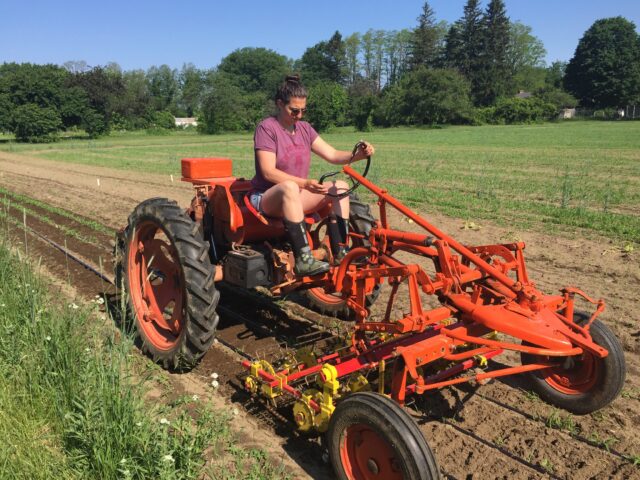2024
The University of Vermont Department of Agriculture, Landscape, and Environment offers a suite of experiential courses each summer that provide hands-on experiential learning opportunities. Courses may be used to catch up or get ahead, and apply to requirements or electives in multiple programs including Agroecology, Sustainable Landscape Horticulture, Food Systems, Environmental Studies/Science, and other programs across the university.
For 2024, most courses will be taught in-person at the UVM Horticulture Research and Education Center. The HREC hosts Catamount Educational Farm, our working commercial fruit and vegetable farm that supports teaching and research activities for numerous faculty and student projects. We have will follow strict, UVM-approved COVID safety protocols in addition to our normal farm safety procedures.uly 19 – August 13, 2023
“
PSS 209: Diversified Farm Operations
CRN: 61385
Instructors: Terence Bradshaw and Rachel Stievater
Credits: 6
Dates: May 22- August 11, 2023
Location: UVM Horticulture Research and Education Center

Course Description: In this hands-on, experiential course, students will learn principles and practices of sustainable, diversified specialty crop production on-site at the Catamount Educational Farm. Topics include: vegetable crop families; soil fertility management; composting; weed, insect and disease management; propagation and planting; crop planning; irrigation systems; farm financials and business planning; marketing techniques; broiler chicken management; and tractor operation. The class format will consist of a combination of lectures, hands-on fieldwork, and visits to local farms. Lectures will be presented by instructors and guest speakers from UVM Extension, the Plant and Soil Science Department and local farmers. Concepts and skills taught will immediately be applied through participation in Cat Farm’s five-acre vegetable operation that supplies produce to the community through a CSA; a farm stand; and multiple wholesale accounts. Some work will also be performed in the UVM orchard and/or vineyard.
This course partners closely with the UVM Farmer Training Program (FTP), a noncredit, 6-month intensive program offered through Continuing and Distance Education. We will learn alongside FTP students both in the field and in the classroom.
Mondays begin with a crop class in the field, followed by a field walk to assess farm management and work tasks required for that week. After the field walk, students will learn farm skills and participate in the weekly farm tasks. Students will learn how to harvest, weed, direct seed, transplant, set up irrigation and operate a tractor.